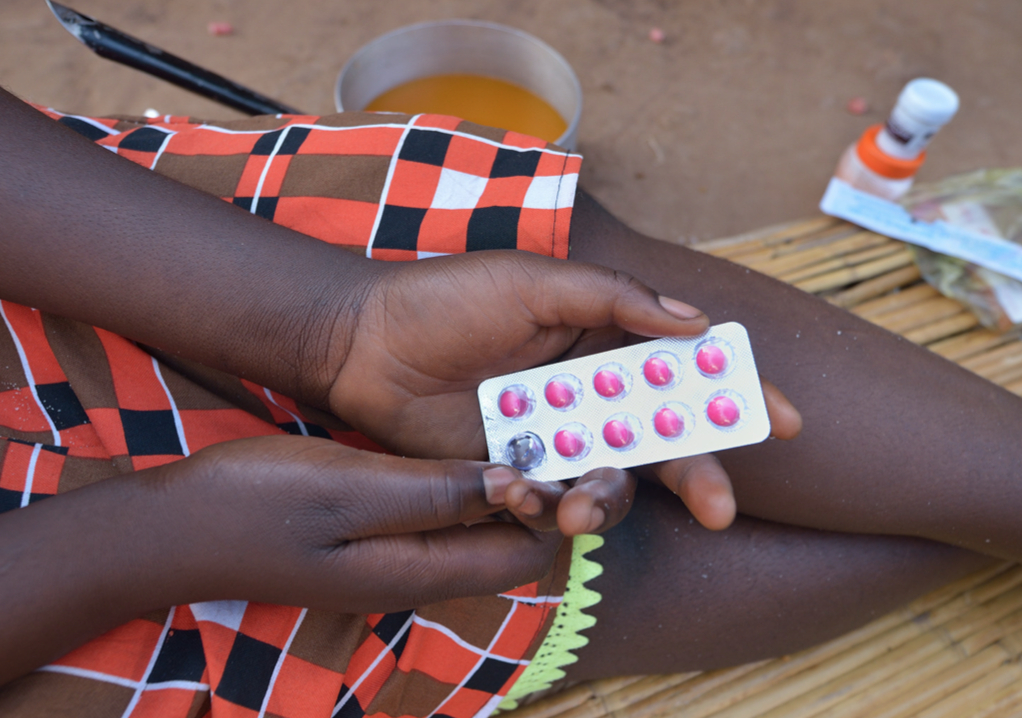Jeremy Wilson and Roy Fenoff, 2011
Reports of counterfeit pharmaceuticals in Africa indicate a wide variety of detrimental effects. In addition to those in public health, these include lost revenues to firms that might otherwise be used to develop newer and better products, lost taxes to governments responsible for public health, additional costs firms and governments incur to protect supply chains from counterfeit products, resulting disincentives to foreign investment, and consequent loss of jobs and economic opportunities.
Unfortunately, the exact extent of this problem, and therefore how best to combat it, is unknown. As a first step to address it, researchers at the Anti-Counterfeiting and Product Protection Program (A-CAPPP) of Michigan State University reviewed 30 open-source publications on it, including academic, governmental, private organization, and media reports. Most of these sources focus on revenue shortfalls to pharmaceutical manufacturers resulting from counterfeit products, perhaps because of the relative ease of measuring revenue and tax streams. Nevertheless, they also offer insights on the broader health, economic, and social problems resulting from counterfeit pharmaceuticals.
The Toll on Public Health
Perhaps the greatest toll that counterfeit pharmaceuticals take is on public health. Malaria is estimated to cost African nations at least $12 billion annually in lost economic output. Tuberculosis is another public-health scourge in Africa; the economic cost of tuberculosis-related deaths, including those resulting from HIV co-infection, in sub-Saharan Africa is estimated to be about $50 billion annually. These losses are compounded by counterfeit pharmaceuticals. Of the one million malaria deaths that occur worldwide each year, 200,000 are reportedly the result of counterfeit anti-malarial drugs. The WHO also indicates that 700,000 Africans die annually from consuming fake anti-malarial or tuberculosis drugs, most of which originate from China and India. Counterfeit pharmaceuticals can also impair health by causing their users to develop a tolerance for the active curative drug in them and making an ultimate cure even more difficult to effect.
Potential Reduced Sales Revenue is Concerning
Sales of counterfeit drugs take away from the sales of legitimate drugs. A 2009 United Nations report found sales of 45 million counterfeit anti-malarial medicines resulted in revenues for their providers of $438 million, more than the GDP of Guinea-Bissau. Another report contended counterfeit drugs sold in Kenya represent up to 40 percent of drugs sold, equaling approximately $130 million annually.
Loss of Tax Revenues is High
Counterfeit goods, including pharmaceuticals, have resulted in hundreds of millions of dollars in lost tax revenue throughout the African continent. The East African Community (Burundi, Kenya, Rwanda, Uganda, and Tanzania) reports more than $500 million in unpaid taxes as a result of counterfeit goods. Tanzania in particular reports losing between $370-617 million per year due to tax evasion related to counterfeit goods.
Innovation and Growth are Deterred
Counterfeits reduce economic incentives to develop new products and decrease brand value, brand reputation, and competitive advantage. There is limited information on how counterfeit pharmaceuticals affect these problems in Africa, but that on intellectual property more generally may help illustrate their effects. Nigeria is reportedly the largest market in Africa for goods that infringe intellectual property rights. By some estimates, the Nigerian pharmaceutical industry operates at less than two-thirds of capacity.
Foreign Investments are Discouraged
Economic analyses by the Organization for Economic Co-operation and Development (OECD) indicate that foreign direct investment from Germany, Japan and the US is relatively higher in economies with lower rates of counterfeiting and that multinationals are less likely to invest in countries where they are likely to have their products copied. Rights holders investing in Kenya reportedly lose an estimated $390 million annually to counterfeiting and piracy. Counterfeit pharmaceuticals in the region, in other words, is one small part of a larger counterfeiting and product piracy problem that leads to economic and job losses that in turn can cause greater demand for cheaper but ineffective counterfeit goods and exacerbate the public-health problems associated with these.
Combating Counterfeiting Incurs Large Costs
The costs to combat counterfeiting include those for public education, health care, supply-chain security, enforcement, prosecution, prison housing, and technology expenses. An A-CAPPP report provides one example of such costs, noting that if 140 million Nigerian citizens were to consume ten pharmaceutical packages per year then the cost of tags and of the associated computer-system and management expenses to verify their authenticity would require $140 million in incremental packaging material costs annually. Replacing counterfeit medical equipment and drugs, re-supplying government stores and institutions, and fixing the damage caused by counterfeit goods also incurs costs.
More Precise Estimates Are Needed
Unfortunately, the reliability of the estimates of the effects of counterfeit pharmaceuticals is unclear. Estimates for many dimensions of the problem do not exist. Those that do are often imprecise on their sources or methods. Acquiring reliable estimates of the economic effects of pharmaceutical counterfeiting in Africa is difficult for several reasons. First, the trade of counterfeit goods is illicit, clandestine, and complex, which makes it difficult to identify and link to outcomes. Second, the pharmaceutical industry has competing interests in the sharing of data—it wants to encourage enforcement but not frighten consumers. Finally, there is little support for data collection and research. Yet policies and responses not supported by rigorous data and analysis can result in costly strategies that are ineffective. Assessing the true nature, extent, and cost of the counterfeit problem in Africa will improve our understanding of the problem, inform priorities and resource allocation for addressing it, facilitate interventions and solutions, bolster the evaluation of anti-counterfeit strategies, and, ultimately, result in the development and implementation of cost-effective promising practices.
2011 Copyright Michigan State University Board of Trustees.
